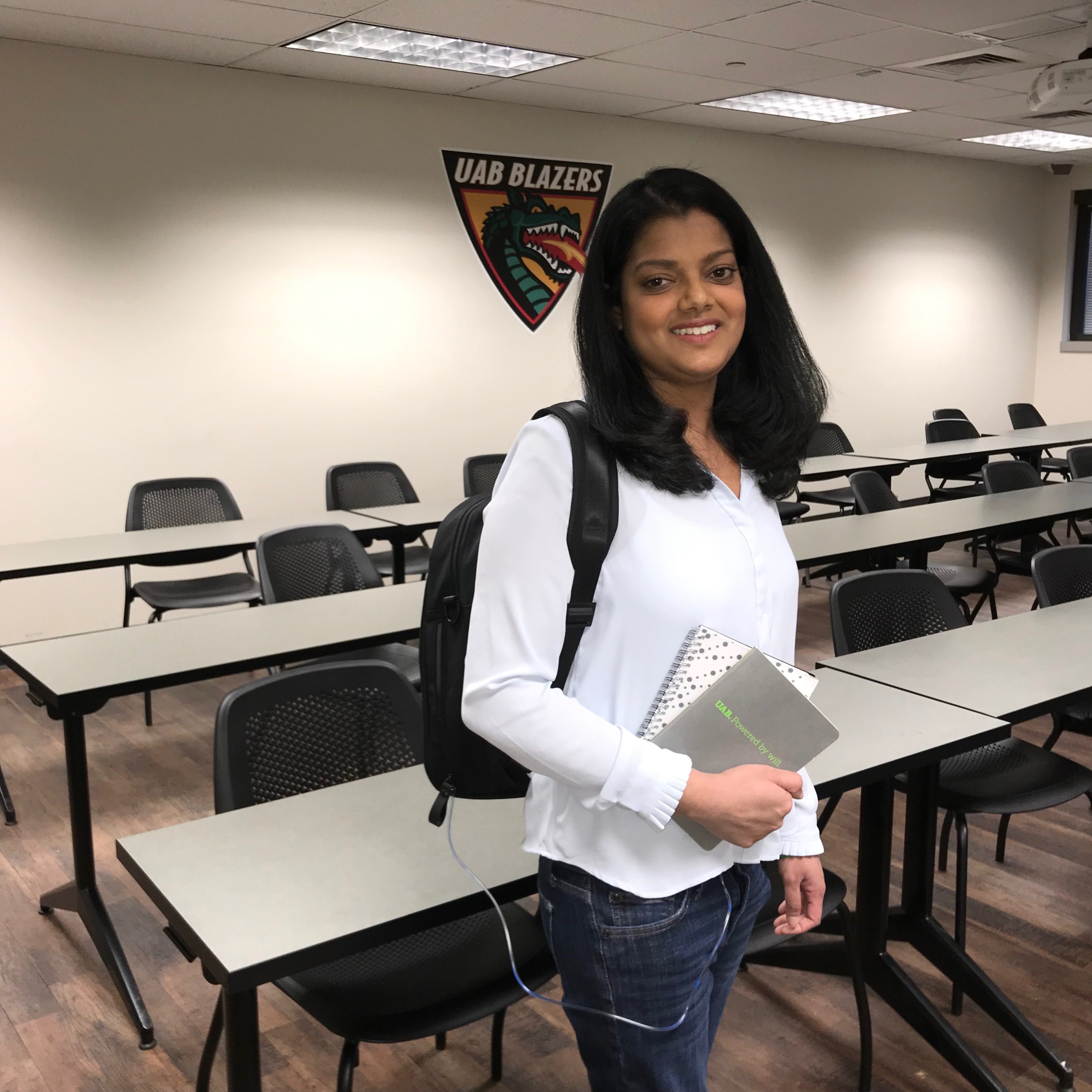I have worn a backpack for my nutritional needs since I was a child. My backpack always was a part of me, but it never defined me. Wearing a backpack all day everyday was my normal.
29 years ago, I was born with Short Bowel Syndrome, and immediately became dependent on nutrition from an IV in my chest (central line), and from a feeding tube in my stomach (gastrostomy tube). I went to school from Kindergarten through college with 2 backpacks. One for my school books and one for my enteral feeds. I was known as the backpack girl or the girl with the backpack. In first grade at 6 years old, I started at a new school, and for the first time another classmate asked me, “what is in your backpack?” I immediately responded, “None of your business!”
I went to school from Kindergarten through college with two backpacks. One for my school books and one for my enteral feeds… Now, for the first time, with the Mighty Pack, I only need one.
Growing Up as “Backpack Girl”
Growing up, I was determined to live a life as similar as my peers; although my daily routines were starkly different. I did not want anyone to know the details of Short Bowel Syndrome and my backpack in fear of being treated differently. As a result, I hardly shared any details about my health. I was able to hide or maintain my hooking up and disconnecting routine to the privacy of my home or the nurse’s office and I kept my feeding tube and line under my clothes. So, the only visible part of my disease was my backpack.
I received enteral feedings from my Mickey Gastrostomy Tube 16 hours of the day every day for 20 years, and TPN (Total Parenteral Nutrition) from either a Hickman central line or Port anywhere from 3-7 days a week for 12 hours a night every night for 26 years and counting. Despite this extensive routine, I attended school just like my peers. It was my normal.
Every year, the routine would be interrupted with hospitalizations to treat the fearful central line infections or for major abdominal surgeries. Thankfully, we were able to conquer both the bacterial and fungal culprits, and continue on with our normal.
Life Post-Transplant
In the middle of college, I had an abdominal surgery, I was confident would be my last. Unfortunately, the surgery resulted in several complications, and a 2 year odyssey of surgeries, second opinions, and more complications, with 4 different surgeons, at 4 different hospitals around the country, ultimately ending in a small intestine transplant in June 2014. Since the transplant, I have had milestones I have only dreamed of, and challenges I never could have imagined.
Through this journey I have learned the benefit of welcoming people into your story. I only was able to get through my hardest moments in the hospital because I let myself be vulnerable. I told my family and friends the details of my health, I was so afraid to share before. In return, strangers would share vulnerable moments of their own life to inspire me to continue to fight. I keep those stories with me today years later.
I have learned the benefit of welcoming people into your story.
I now proudly share my story with the whole world! With my backpack on I travel across the country as a professional speaker and healthcare advocate giving keynotes to healthcare companies and associations about my story and ways to improve healthcare delivery and the patient experience. I have created a platform on social media, Swapna Speaks, where I get to connect with individuals with similar journeys and help them navigate the healthcare system. I am also involved in advocacy surrounding state and federal legislation that affect the short bowel syndrome, intestinal failure, transplant community, and the larger rare disease population. In 2017, I created Alabama Rare, a grassroots organization to unite the state around the rare disease population. It acts to bring support for individuals & families, educate the broader community, bring awareness to the population’s needs, and advocate for necessary change. In 2018, I started graduate school in public health at the University of Alabama at Birmingham.
The Mighty Pack
I am also excited to finally have a backpack that can fit my active life and be conscious to my health needs. I love that for the first time, I no longer must wear two backpacks.
With the Mighty Pack, I only need one backpack. I can fit both my laptop and my TPN or IV Fluids. Other features I love:
It’s also…
- Water Resistant
- Stands up on its own with or without contents
- Plenty of pockets
- See through pockets for medical supplies
- Pump is accessible with it remaining in the backpack
- Snaps to hang IV bags and keys
- Professional Look
Learn more about Alabama Rare at alabamarare.org and learn more about Swapna at swapnakakani.com or follow her @SwapnaSpeaks on Twitter, Facebook, or Instagram.

